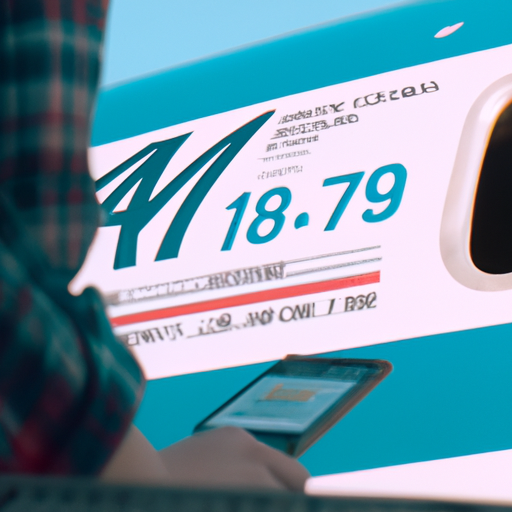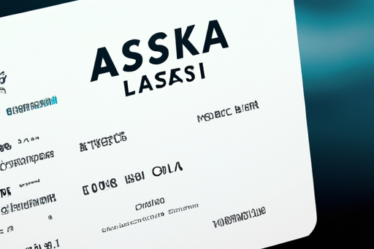
The Impact of Hidden City Ticketing on Airline Revenue
Hidden city ticketing is a practice that has been gaining popularity among savvy travelers looking to save money on airfare. It involves booking a flight with a layover in a desired destination, but instead of continuing on to the final destination, the traveler simply disembarks at the layover city. This can result in significant savings, as flights to popular destinations are often more expensive than those with layovers.
However, hidden city ticketing is not without its consequences. Airlines, such as American Airlines, have been cracking down on this practice due to its impact on their revenue. Recently, American Airlines made headlines when they investigated and prohibited a teenager for using hidden city ticketing.
The impact of hidden city ticketing on airline revenue cannot be underestimated. When travelers book a flight with a layover, they are essentially paying for two flights – the one to the layover city and the one to the final destination. However, when they choose to disembark at the layover city, they are essentially getting a discounted fare for their desired destination. This means that the airline is losing out on the revenue they would have earned from selling a ticket directly to the final destination.
For airlines, this loss of revenue can be significant. It not only affects their bottom line, but it also disrupts their pricing strategies. Airlines carefully calculate their fares based on a variety of factors, including demand, competition, and operating costs. When passengers engage in hidden city ticketing, it throws off these calculations and can result in higher fares for other travelers.
To combat this issue, airlines have implemented measures to deter hidden city ticketing. American Airlines, for example, has a strict policy against this practice and actively investigates and prohibits passengers who engage in it. They have even gone as far as suing websites that promote hidden city ticketing, such as Skiplagged.
While airlines have the right to protect their revenue, some argue that hidden city ticketing is a response to the high cost of airfare. Travelers are constantly looking for ways to save money, and hidden city ticketing provides a loophole that allows them to do so. It is a way for consumers to take advantage of the pricing strategies employed by airlines.
However, it is important to note that hidden city ticketing is not without risks. Airlines have the right to cancel a passenger’s ticket and even ban them from future flights if they are caught engaging in this practice. Additionally, hidden city ticketing can also have unintended consequences for travelers. For example, if a flight is delayed or canceled, passengers who have engaged in hidden city ticketing may find themselves stranded in a layover city with no way to reach their final destination.
In conclusion, hidden city ticketing has become a popular way for travelers to save money on airfare. However, it is not without its consequences. Airlines, such as American Airlines, are cracking down on this practice due to its impact on their revenue. While hidden city ticketing may provide a temporary solution to the high cost of airfare, it is important for travelers to weigh the risks and potential consequences before engaging in this practice.
Ethical Considerations of Hidden City Ticketing in the Airline Industry

Hidden city ticketing is a practice that has been gaining attention in the airline industry. It involves booking a flight with a layover in a desired destination, but instead of continuing on to the final destination, the passenger simply disembarks at the layover city. This allows travelers to save money by booking a cheaper flight to the layover city, rather than paying the higher fare to the final destination. However, this practice has raised ethical concerns within the industry.
Recently, American Airlines made headlines when it investigated and prohibited a teenager for engaging in hidden city ticketing. The airline discovered that the teenager had been consistently booking flights with layovers in order to save money. While this may seem like a clever way to save some cash, it is important to consider the ethical implications of such actions.
One of the main ethical concerns with hidden city ticketing is that it goes against the terms and conditions set by the airlines. When passengers purchase a ticket, they enter into a contract with the airline, agreeing to abide by their rules and regulations. By engaging in hidden city ticketing, passengers are essentially breaking this contract. This raises questions about the integrity and honesty of the passengers involved.
Furthermore, hidden city ticketing can have negative consequences for the airline industry as a whole. Airlines rely on revenue from ticket sales to cover their operating costs and make a profit. When passengers engage in hidden city ticketing, they are essentially taking advantage of the system and not paying their fair share. This can result in financial losses for the airlines, which may then lead to increased ticket prices for other passengers.
Another ethical consideration is the impact of hidden city ticketing on other passengers. When a passenger books a flight with a layover, the airline plans and allocates resources accordingly. This includes assigning gates, crew members, and baggage handling services. When a passenger fails to show up for the connecting flight, it can disrupt the airline’s operations and inconvenience other passengers. This raises questions about fairness and consideration for others.
While hidden city ticketing may seem like a clever way to save money, it is important to consider the ethical implications. American Airlines’ decision to investigate and prohibit the teenager involved sends a clear message that such practices are not acceptable. It is crucial for passengers to respect the terms and conditions set by the airlines and to consider the impact of their actions on the industry and fellow travelers.
In conclusion, hidden city ticketing raises ethical concerns within the airline industry. By engaging in this practice, passengers are breaking the terms and conditions set by the airlines and taking advantage of the system. This can result in financial losses for the airlines and inconvenience for other passengers. It is important for passengers to consider the ethical implications of their actions and to respect the rules set by the airlines. By doing so, we can ensure a fair and sustainable airline industry for all.
The Legal Implications of American Airlines’ Investigation and Prohibition of Teenagers for Hidden City Ticketing
American Airlines recently made headlines when it announced that it had launched an investigation into a teenager who was found to be engaging in hidden city ticketing. This practice, also known as skiplagging, involves booking a flight with a layover in a desired destination and intentionally missing the connecting flight to save money. While it may seem like a clever way to cut costs, hidden city ticketing is actually against the rules of most airlines, including American Airlines.
Hidden city ticketing has been a controversial topic in the travel industry for quite some time. Proponents argue that it is a savvy way to take advantage of pricing discrepancies and save money on airfare. However, airlines argue that it is a violation of their terms and conditions, as well as a breach of contract. American Airlines, like many other carriers, explicitly prohibits hidden city ticketing in its contract of carriage.
The recent investigation by American Airlines into the teenager’s hidden city ticketing activities raises important legal implications. By actively investigating and prohibiting this behavior, American Airlines is sending a clear message that it takes violations of its terms and conditions seriously. This could have significant consequences for travelers who engage in hidden city ticketing, as they may face penalties or even be banned from flying with the airline in the future.
From a legal standpoint, American Airlines has the right to take action against passengers who violate its terms and conditions. When travelers purchase a ticket, they enter into a contract with the airline, agreeing to abide by its rules and regulations. By engaging in hidden city ticketing, passengers are essentially breaching this contract. American Airlines, as the party that has been harmed by this breach, has the right to seek remedies and enforce its contractual rights.
It is worth noting that American Airlines is not the only airline cracking down on hidden city ticketing. In recent years, several major carriers, including United Airlines and Delta Air Lines, have filed lawsuits against websites that facilitate this practice. These lawsuits aim to protect the airlines’ revenue and ensure that passengers are not taking advantage of pricing loopholes.
While hidden city ticketing may seem like a harmless way to save money, it is important for travelers to understand the potential legal consequences. Engaging in this practice can not only result in financial penalties but also damage a passenger’s reputation with the airline. In extreme cases, individuals may even be banned from flying with certain carriers altogether.
In conclusion, American Airlines’ investigation and prohibition of a teenager for hidden city ticketing highlights the legal implications of this controversial practice. By actively enforcing its terms and conditions, the airline is sending a clear message that it will not tolerate violations of its rules. Travelers should be aware of the potential legal consequences of hidden city ticketing and consider alternative ways to save money on airfare. It is always advisable to read and understand an airline’s contract of carriage before booking a flight to avoid any potential legal issues.


